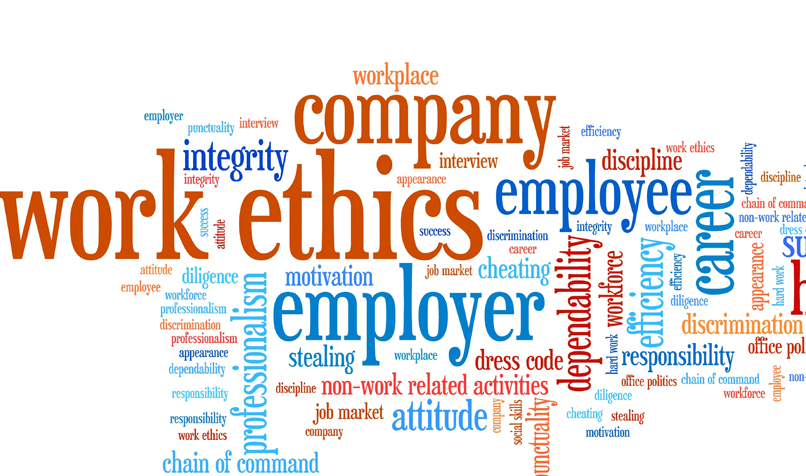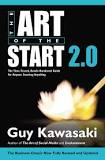 |
The Centrality Of Work Ethics In Today’s Workplace |
Quite a number of issues confronting managers and employees at work are directly related to poor work ethics and their consequent impact on the organisation. Unless the root of such issues is properly identified and addressed, finding practicable solutions may be unfeasible.
Moving a member of staff to a new team or assigning her to a new supervisor may not be the solution if her attitude problem is not fixed through coaching or any other appropriate means. In the same manner, a manager who cannot express himself in simple and clear language would struggle to perform on the job regardless of how productive his superiors or subordinates are.
Simply defined, work ethics refers to the standards of conduct and values for performing on a given job. When these standards (whether on a personal or corporate level), it is very unlikely that people will be able to give their best to the organisation.
As a matter of fact, work ethics play a vital role in predicting the future progress or stagnancy of an organisation and may also determine whether an organisation thrives or eventually goes under.
In this article, we shall explore six (6) of the most important work ethics that managers and employees alike should imbibe in carrying out their day-to-day work activities –
- Competence: - Ordinarily, competence might not look like a typical work ethic, but it is really the starting point because a whole lot depends on it. Taking on a task or job you are not competent enough to perform - especially for personal or selfish gains - is usually not in the best interests of the organisation and will ultimately lead to poor performance on the job. The practice of putting square pegs in round holes is associated with work environments where nepotism and favoritism are the order of the day. If you are not the ideal person to get the job done, admit it and take up tasks that make the best use of your skill set, experience and expertise. Focus on constant improvement both on a personal and professional level. Strive to be the best in whatever you do.
- Communication: - It is often said that if you cannot explain an idea or concept to a five-year old, then you don't really understand it yourself. Make sure you communicate in ways that people can easily understand or comprehend. Monitor feedback from people around you as a means of gauging how effective your communication is. Ask questions whenever you are in doubt and be willing to adjust your message medium or communication style to suit the other person, if necessary. The ability to listen well is also an essential communication ability that only a handful of people possess. Listen more, speak less. Stay clear of ambiguity in order to minimise misinterpretation or confusion. Being a good communicator requires that you take things that are difficult to comprehend and make them appear simple.
- Attitude: - It's not just about what you do but how you do it. Your attitude plays an important role in determining how productive you will be on the job. Regardless of how you try to conceal it, your attitude will always manifest in your words and actions. So, examine it and be willing to change it if it's not producing the required results. One of the great ways to manifest a good attitude is to accept responsibility for your decisions and actions even if they turn out to be bad. Constantly shifting the blame shows a lack a leadership and courage on your part. Also, be open-minded and be willing to learn from superiors, subordinates, clients etc. If your attitude is not right, a lot of things in your daily grind will be out of place.
- Punctuality: - As commonplace as it may seem, punctuality is a key aspect of your professionalism as an individual. If you make a habit of always coming in late, you may eventually be sidelined regardless of the abundance of talent and expertise that you possess. Punctuality could also strengthen or damage your reputation; it all depends on the kind of impression that you want people to have about you. If you are running late, which may come up occasionally, make sure you inform the right person(s) but this should not happen on a consistent basis. Traffic problems, domestic responsibilities and personal issues are common excuses, but you do not necessarily have to slip into an excuse culture. Be there on time and break free from the mindset of "African timing."
- Integrity: - The popular adage which says 'honesty is the best policy' is still as true as ever. Integrity is a very scarce commodity these days and therefore highly cherished in people who possess it. Being honest and straightforward often brings the best rewards at the end of the day. Even it it doesn't, you will still guard your reputation as a person of integrity. Say it as it is, no matter how uncomfortable the truth may seem. Many organisations have gone bankrupt because those in charge were not men and women of integrity. In the final analysis, character will always trump skills and talents. As you work towards reaching your career goals and getting to the peak of your career, always remember that shortcuts are not always short in the end.
- Teamwork: - Often, two heads are better than one. You cannot get the best out of yourself if you do not master the art and science of working with people. Teamwork is an important work ethic that can enhance your productivity level and boost the results that you get on the job. A typical organisation is a social cluster of people working together to achieve common goals and therefore you cannot afford to be an island. Taking such a lonely path where you lack teamwork could probably mean that you are swimming against the tide. If you aspire to occupy management and leadership positions soon, then you must improve your team abilities and learn to get along with people having ideas and orientations that are quite different from yours.
When you can inculcate these six vital work ethics, your job performance will gradually improve irrespective of the nature of your work or the kind of people you work with. It all begins with and ends with you, the buck stops at your desk. Do things that you are capable of and challenge yourself from time to time. Communicate effectively and be sure that you are understood. Always maintain a positive attitude and in all situations. Be punctual and always keep to time even if there are no adverse consequences. Being a person of integrity always pays in the end.
Finally, work with others to get the best out of yourself and out of them too.
| Tags: |
Related Articles

|
The Art of the StartI use a top-ten list format for all my speeches, and I would love to begin this book with a top-ten list of the most important things an entrepreneur must accomplish. However, there aren't ten there are only five,
Great Ideas for Starting Things
Make Meaning. The best reason to start an [Read more]
|
Posted: 15 years ago |

|
How to Manage Out-Of-Office Employees EffectivelySometimes, having teams that work for you outside the office is inevitable. You might not always have the workspace or even the resources to keep all your members of staff under one roof. And this leads to having to have out of office teams that work offsite.
This can be very effective if you mus [Read more]
|
Posted: 6 years ago |

|
Gain report: Nigeria - Food and agricultural import regulations and standards - narrativeSection I. Food Laws: This report was prepared by the Office of Agricultural Affairs of the USDA/Foreign Agricultural Service in Lagos, Nigeria for U.S. exporters of domestic food and agricultural products. While every possible care was taken in the preparation of this report, information provided m [Read more]
|
Posted: 16 years ago |


